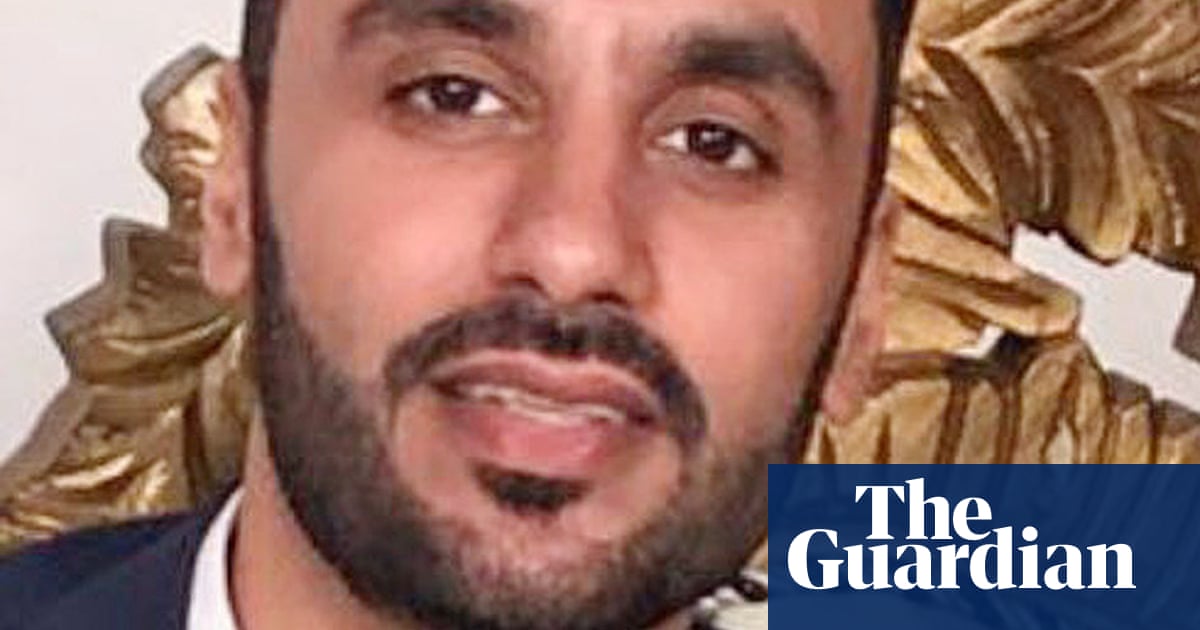Hopes that Jagtar Singh Johal, a British Sikh man held in an Indian jail for seven years, would be released on bail were dashed on Thursday when his case was deferred by the Indian supreme court possibly until after the summer, prompting calls from MPs for the UK foreign secretary,David Lammy, to intervene.
Lammy is due to meet Johal’s brother again next week.
There had been hopes Johal would finally be released at least on bail after in March he wascleared of all chargesin a case in Punjab that exactly parallels the charges laid against him in the federal courts.
He has not been convicted of any crime since his arrest in November 2017.
Johal, from Dumbarton inScotland, is accused of being a member of a terror group, the Khalistan Liberation Force (KLF), which has carried out attacks in Indian Punjab.
The charges against him include that he travelled to Paris in 2013 and delivered £3,000 to other KLF figures, with the money then used to buy weapons that were used in a series of murders and attacks against Hindu nationalist and other religious leaders in 2016 and 2017. He has denied the charges.
Johal claims he was tortured at the outset of his detention and forced to make a confession by signing a blank sheet of paper. A UN working party has claimed he is being held under arbitrary detention.
A new letter to Lammy, signed by 117 cross-party MPs and peers, calls for urgent British diplomatic pressure.
It says there is a “window of opportunity” to secure Johal’s release following his acquittal in one of the cases against him. The letter says: “The judgment on the evidence led is crucial and relevant to securing his release, because it is the same evidence that exists in the other outstanding federal court cases.”
The campaign group Reprieve, which has been backing calls for his release, said it understood bail had been deferred because his case had become enmeshed in a broader consideration of the length of pre-trial detention in cases brought under the Unlawful Activities Prevention Act, a law human rights defenders claim has been abused to shut down civic freedoms inIndia.
Reprieve said Johal’s continued detention on the same charges in a different court after his acquittal challenged the principle of double jeopardy, a risk recognised in Indian and international law.
The Indian authorities do not claim Johal was directly involved in any of the attacks. All the cases are based on the same alleged confession: Johal signed his name on a blank piece of paper after police tortured him with electricity and brought petrol into the cell and threatened to burn him alive.
Johal’s brother Gurpreet Singh Johal, a Labour councillor in West Dunbartonshire, said: “I’m glad the foreign secretary is meeting me again, as it shows he recognises that this is a make-or-break moment for Jagtar.
“The case against my brother has been tested in court and rejected, but the Indian authorities will keep him in prison for decades if the UK government doesn’t act to secure his release.
“We’ve seen that today at the supreme court – just the latest in an endless series of delays. This is the moment of truth for David Lammy: will he live up to his promises, or will he fail Jagtar like the last six foreign secretaries did?”
Dan Dolan, the deputy executive director of Reprieve, said: “This is a politically motivated prosecution of a young British human rights defender, and the process is the punishment. Jagtar has been found not guilty once, after prosecutors failed to present any credible evidence against him in seven years. For him to remain imprisoned for decades, as duplicate trials drag on in defiance of the principle of double jeopardy, would be an obscene injustice. It is time for the government to act on its strong statements in opposition and do what it takes to bring Jagtar home.”
